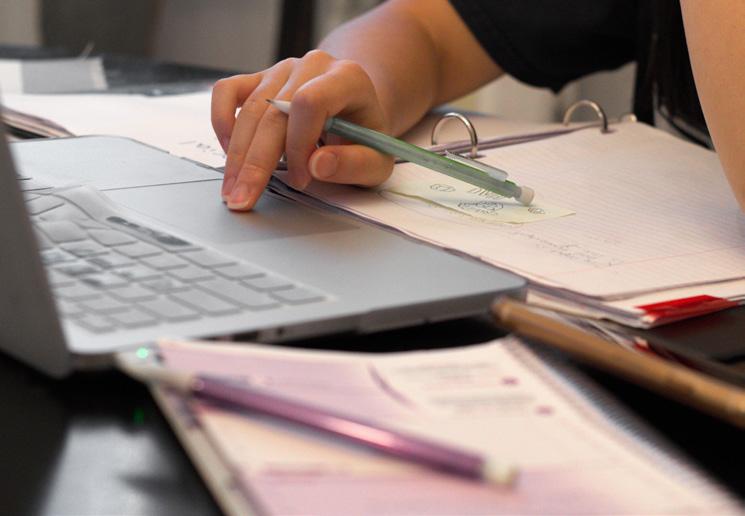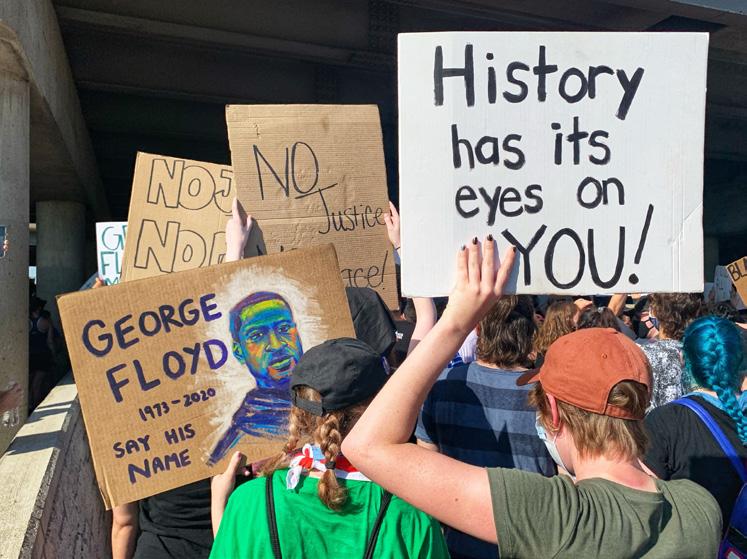
2 minute read
Reading, Writing, and Resilience
Social work students and faculty respond to a pandemic, protests and economic uncertainty
by Laurie Anderson
In March of 2020, the University of Georgia temporarily suspended instruction for two weeks. The action, taken to reduce the spread of the novel COVID-19 virus, changed lives and the learning environment. As stores ran short of hand sanitizer and disinfectant, faculty scrambled to adapt teaching from in-person to online and hybrid models. Administrators lowered classroom seating density, in keeping with recommended social distancing guidelines. Handshakes became hand waves and “elbow bumps.” Protective coverings over noses and mouths hid facial expressions.
By the time the university returned to instruction, classes had moved either entirely online or metamorphosed into hybrid in-person/ remote permutations involving small groups of students. Students became more dependent than ever on connecting to others through the internet, and more isolated.
The “new normal” put a huge strain on resources, both physical and mental.
Stress increased in late May when the nation viewed a horrific video of a police officer choking George Floyd, an unarmed Black man, to death. Students and faculty took action to fight systemic racism. Some put their lives at risk in mass outdoor protests.
A contentious national election and job losses due to the pandemic added to personal and professional pressures.
Through it all, members of the School responded in ways that showed social work values in action.
The School’s Center for Social Justice, Human and Civil Rights and the Institute for Nonprofit Organizations helped distribute food to families impacted by pandemic-related income loss.
Students created or anchored outreach projects to improve the health and well-being of vulnerable populations. They volunteered, raised voices about health disparities and racism, held panel discussions on voting issues, and offered each other encouragement.
Faculty conducted online meetings with student cohorts to hear concerns, discussed ways to make classes more inclusive and sensitive to student needs, found academically acceptable alternatives to in-person internships, and spent additional hours adapting courses to online formats. “I spent a long, long amount of time restructuring the class and thinking it through,” said one instructor. “Although when you look at the syllabus it’s not obvious.”
In addition to ongoing research projects, faculty also added research on the impact of the COVID-19 pandemic, drafted a social justice advocacy statement regarding the university’s COVID response/plan, and gathered and shared information on teaching, learning and service opportunities.
Alumni stepped up as well with financial support for students.
If there were academic lessons learned from it all, faculty reminded students, it was that the hurdles they faced would help prepare them for their professional careers….and that hurdles are best faced in a supportive environment.
“If nothing else,” Dean Anna Scheyett told students, “I think COVID has taught me three things: one is the tremendous importance of support. The other is the tremendous importance of flexibility, and finally the tremendous importance of giving each other grace.”












